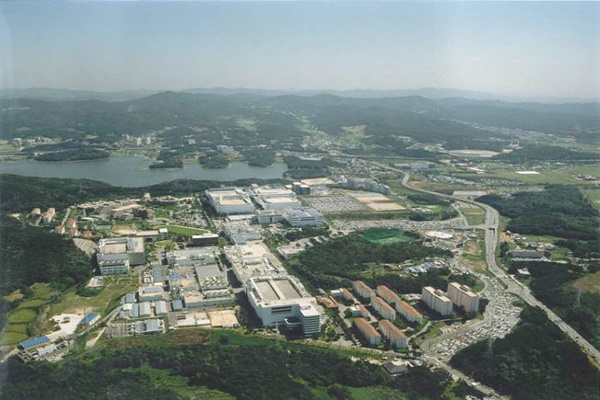Samsung Electronics is opening up its consignment production (foundry) of semiconductor business to South Korea’s small and medium fabless businesses. It is going to start foundry service for main chips for IoT with these businesses. Samsung Electronics is basically changing its business method that had only focused on huge businesses such as Apple and Qualcomm.
It is expected that small and medium businesses can reduce more cost and improve more performance than producing in China and Taiwan. It is predicted that this will bring life to South Korean fabless industry’s ecosystem.
According to related to industries on the 17th, Samsung Electronics’ Device Solution (DS) Sector’s System LSI Business Department will introduce Process Design Kit (PDK), which is a process that will be provided to uncertain number of IoT fabless semiconductor customers shortly. IoT foundry services takes place at Giheung’s 7 Line and 8 Line that are factories for 200mm (8-inch) wafers. Production capacity for these lines is between 150,000 to 200,000 sheets per month. Samsung Electronics is going to produce its own products and work on foundry service at these two lines.
Variety of IoT semiconductors such as MCU (Micro Controller Unit), Smart Card IC and others are produced at these lines and they are produced by 65-nano embedded Flash Process. Certain South Korean major fabless businesses have settled to take on Samsung Electronics’ foundry service and they are currently re-designing chips according to parameters of Samsung’s process. Finished products will come out by end of first half of 2016. Samsung Electronics is also thinking about expanding service process node for 130-nano and others according to customers’ demands in the future.

Samsung Electronics had been focusing on ‘small varieties and large production’ while providing its foundry business to large businesses due to profitability. Although number of customers is small, Samsung Electronics had stuck to this strategy even from early days of foundry business because they can produce large amount of supplies.
“If Samsung Electronics does not make more than $1.65 billion (2 trillion KRW) in yearly sales, it does not have manpower or budget that can easily expand its business.” said a person related to this industry. This is a reason why Samsung Electronics had not respond to fabless industry’s request in opening up Samsung Electronics’ foundry service.
It can be seen that reasons why Samsung Electronics has decided to open up its 200 mm foundry factories to small and medium fabless semiconductor businesses are because it wants to co-exist and grow together with them.
South Korean fabless businesses had been producing chips for IoT for China’s SMIC, Taiwan’s UMC and others. However there had been many times when they had come to disagreements due to different language and culture. Close contact is essential for fabless and foundry to improve yield and performance of finished products. If they use Samsung Electronics’ foundry service, they can solve this kind of problems and rapidly supply their products at the same time.
“Although we had faced many difficulties in the past in communicating with our foreign customers while producing chips to them, we were able to solve such problems due to Samsung Electronics’ opening up its foundry to us.” said a person related to fabless industry. “Because Samsung Electronics’ semiconductor factory is a place that is verified perfectly, we expect that competitiveness even in simple extrinsic requisites in production cost such as expansion in yield, miniaturization of chip’s area and others will greatly improve.”
Industries are interested whether Samsung Electronics will change structure of its foundry business from ‘small varieties and large production’ to ‘many varieties and small production’ with this decision that it has just made.
Staff Reporter Han, Juyeop | powerusr@etnews.com